How to Brown Butter
May contain affiliate links. Disclosure policy.
Brown butter adds amazing rich flavor to both sweet and savory recipes. We’re answering all of your questions on how to make brown butter and what to do with it after it is made.
One thing I love about cooking and baking is that there is always something new to learn. I’ve been working in the kitchen for over 30 years, but I had never gotten into testing brown butter that much.
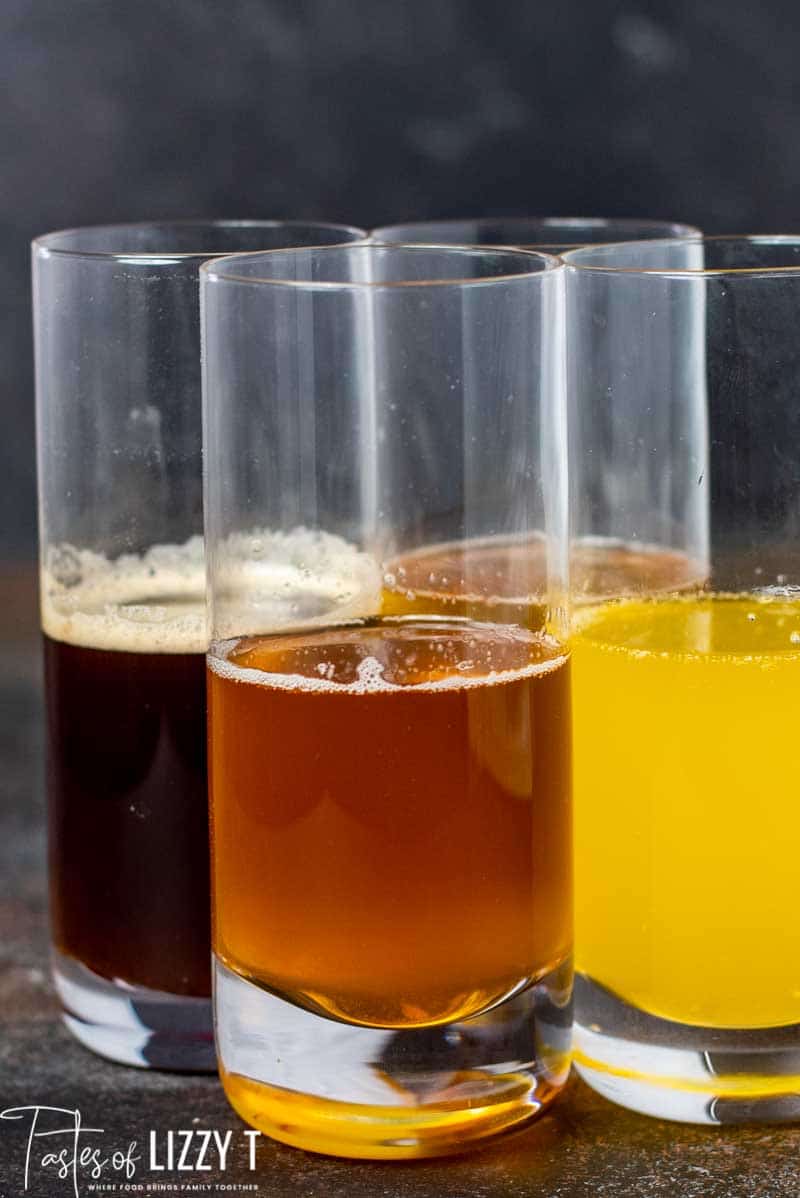
Yes, I had made browned butter for cookies and frostings, but I had several questions I needed answered.
Last fall I tackled brown butter face on. I researched. I made it. Over and over. I tried different methods. And today I’m answering all of your questions in this complete guide on how to brown butter.
What is brown butter?
There’s a science behind brown butter (also called Beurre Noisette). Water content in butter cooks off and milk solids solidify, which reduces the volume of butter and leaves a thick nutty, rich flavored butter base. It is good in so many different recipes, both sweet and savory.
Browned butter will act very similar to butter in recipes, but it will have a different flavor. It has a nutty flavor. If you replace browned butter for regular butter in baked goods, it will deepen the flavor and make the baked good more rich.
3 Types of Brown Butter
There are three different types of brown butter. We prefer the first two:
- Light browned butter is great in sauces over meats and vegetables.
- Medium browned butter adds a depth of flavor to baked goods.
- Dark (but not blackened) butter has a more bitter taste and is used in some French dishes. In an a very dark state, it is called black butter, or beurre noir.
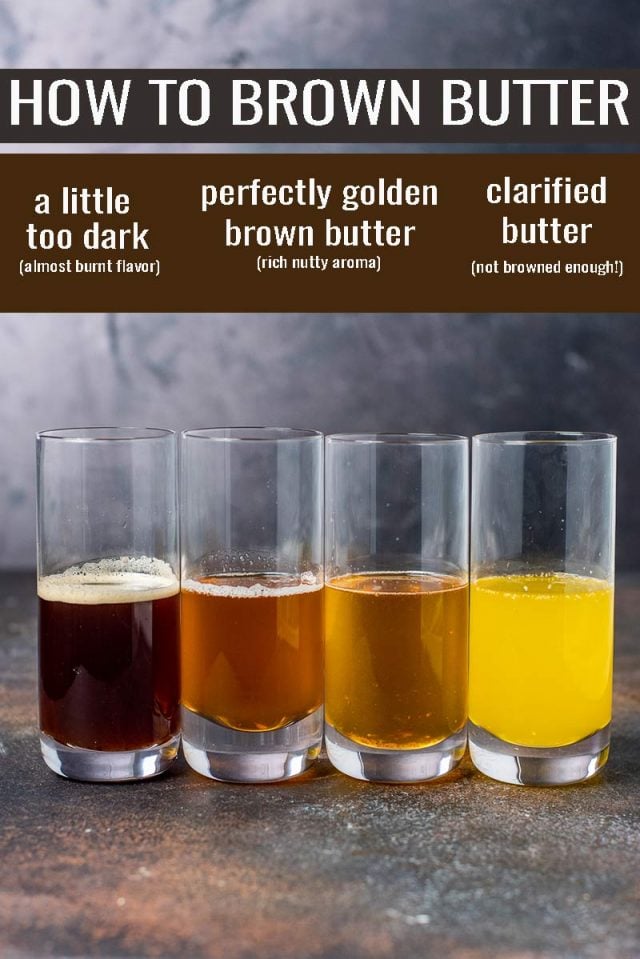
How to Make Brown Butter
- Use a heavy bottomed saucepan or skillet for even heating. Place it on the stove.
- Cut butter into 1 tablespoon chunks. Place the butter in the saucepan and set the heat to medium-low heat.
- Allow the butter to melt, stirring often so that it melts evenly.
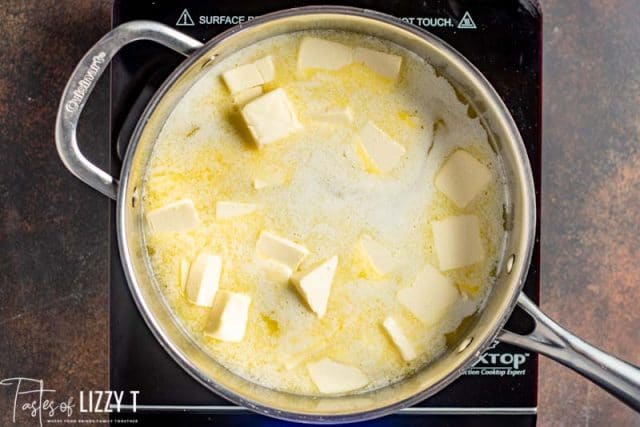
- As the butter melts it will start to bubble and “foam”. The butter will become cloudy.
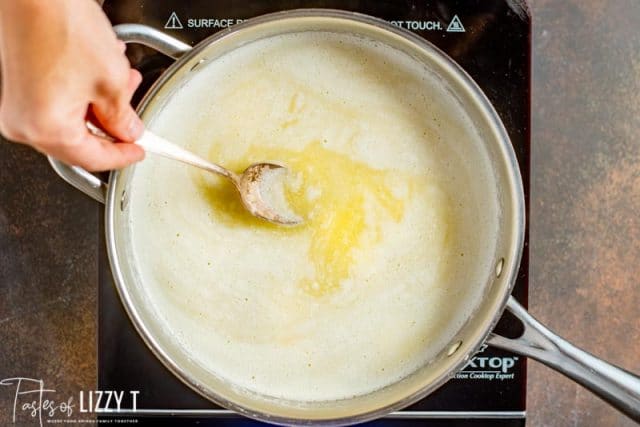
- Then as it continues to cook the butter will become clear.
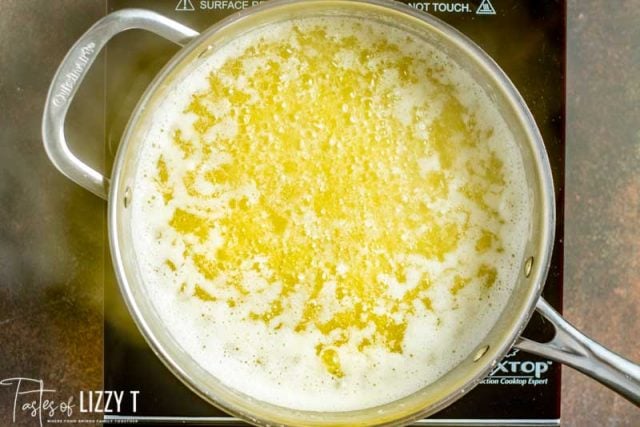
- At this point you’ll see milk solids start to form on the bottom of the pan. As they turn into golden brown bits, the butter will also turn to a golden color.
- Butter is perfectly browned when it has a nutty, caramel aroma. As soon as you see the butter turn golden brown and smell nutty, take the pan off the heat and pour the clear browned butter into a clean jar or bowl.
- If you’d like you can use a strainer or cheesecloth to strain any milk solids.
- Use the melted butter right away or allow it to solidify. Refrigerate any leftovers.
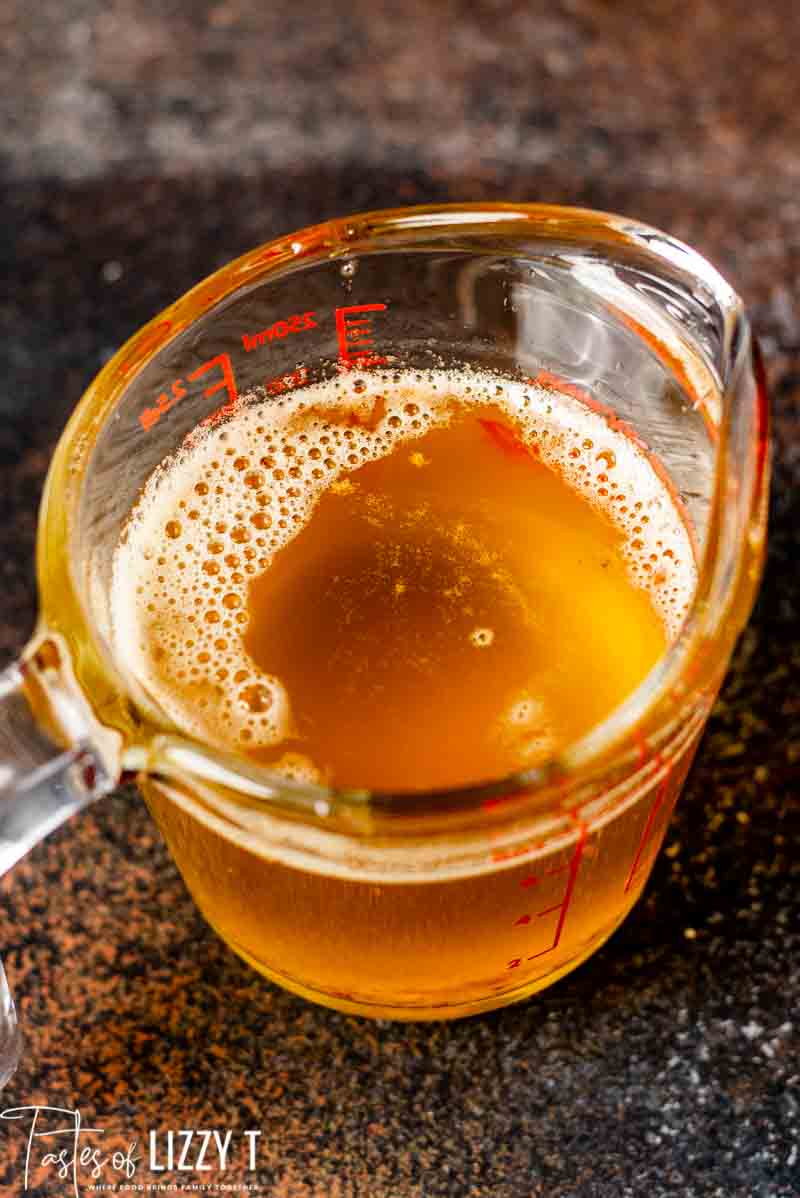
Make it in the microwave.
It’s actually our favorite method!
Cut 2 sticks of cold butter into tablespoons and place it in a microwave safe bowl. Cover the bowl with a microwave safe plate or bowl.
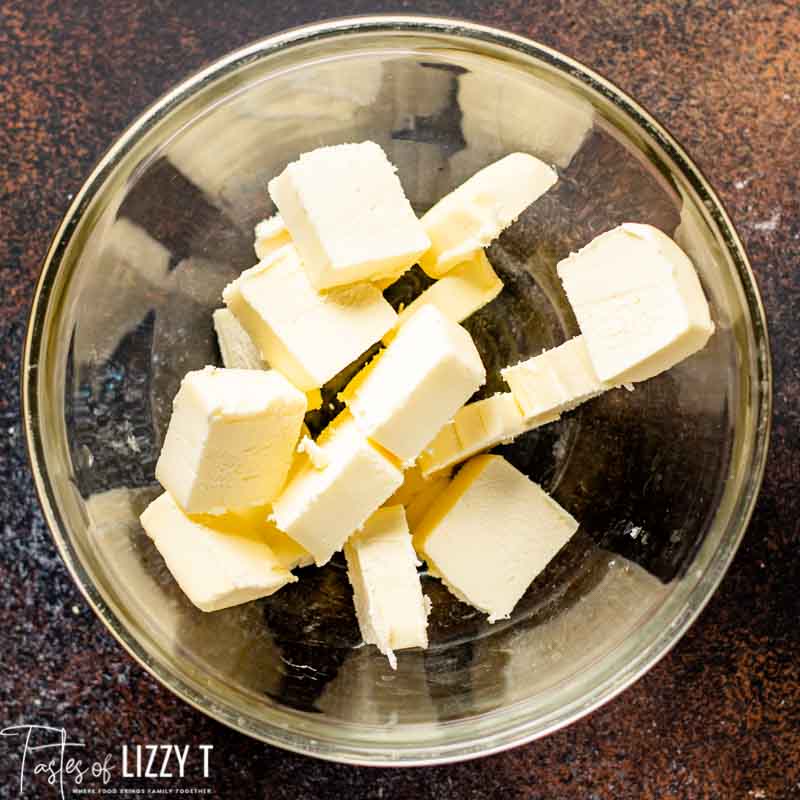
Microwave for 3 minutes. When you open the microwave, the butter should look browned and have a nutty aroma. Let it cook longer if needed.
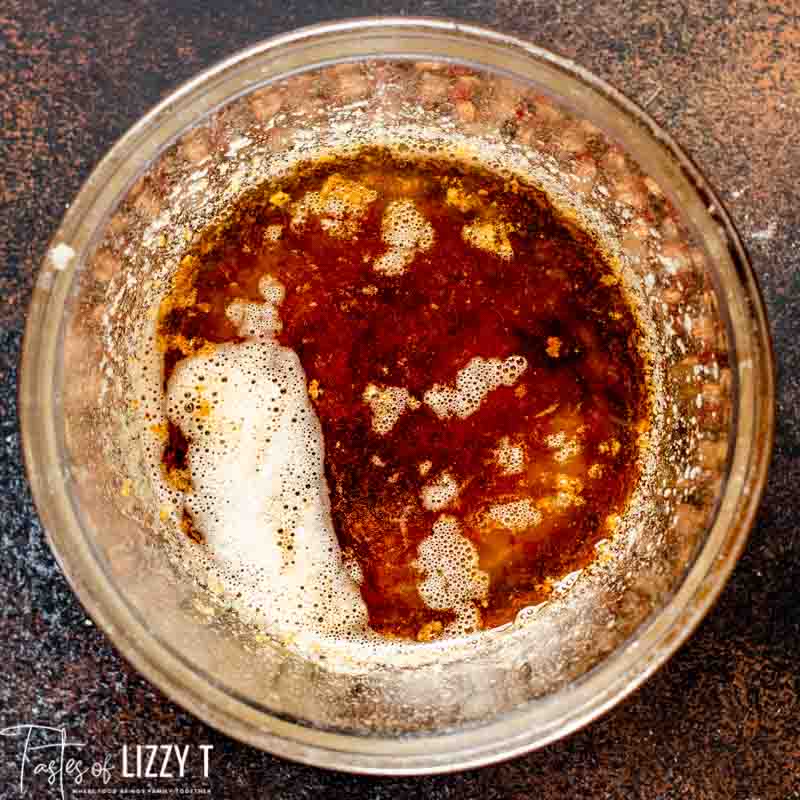
*Mine took about 6 minutes total. The exact time will depend on your microwave and the type of bowls you are using.*
**Tip: If you are making less than 1 cup, reduce the cooking time to 2 minutes to start.**
Should you strain brown butter?
Straining browned butter is really a matter of preference. The dark solids are safe to eat but may have a slightly “burnt” flavor. They can add to the flavor, but if you don’t like them, you can leave them out.
To strain the butter, we often just pour the butter from the pan into a clean jar. As we do this, we try to keep as many solids out as possible. If a few get in, we’re ok with that.
If you want no solids in your butter, use a very fine strainer or even a cheesecloth and run the melted butter through to keep it pure.
Whether you strain the butter or not may depend on what you are making. If you don’t want the appearance of the dark flecks, you should strain the butter.
Frequently Asked Questions:
Can you make brown butter with margarine?
Margarine spreads are made up of all different types and combinations of water, fat and flavorings, so you will not get the same result with butter as you will brown butter. For the best flavor and texture, use real 100% butter.
Can you use in a nonstick pan?
You can use an nonstick pan, but because of the dark surface it may be hard to tell when the butter solids have reached the correct dark color. For that reason, we recommend using a stainless steel or white pan.
Can you brown salted butter?
You can, but the salt will end up with the milk fat solids and might alter the flavor of the butter.
How long does it take butter to brown?
Browning butter takes only a few minutes! It is best to cook the butter over medium heat. You can turn the stovetop to high heat, but it is more likely that the little brown milk solids will burn at higher temperatures.
Can you freeze brown butter?
Yes! Just as with regular butter, you can freeze browned butter for up to 4 months. This is a great way to plan ahead for holidays.
How to Use Brown Butter
- Mashed Potatoes
- Almond Salmon
- Drizzle over popcorn
- Brown Butter Cinnamon Rolls
- Serve with pasta, such as in our brown butter spaghetti
- Spread on Toast
- Brown Butter Chocolate Chip Cookies with Nutella


How to Brown Butter
Brown butter adds amazing rich flavor to both sweet and savory recipes. We're answering all of your questions on how to make brown butter and what to do with it after it is made.
Servings 32
Prep Time 5 minutes
Cook Time 10 minutes
Ingredients
- 2 cups unsalted butter (4 sticks)
Instructions
How to Make Brown Butter on the Stove:
- Place a heavy bottomed saucepan on the stove.
- Cut butter into 1 tablespoon chunks.
- Place the butter in the saucepan and set the heat to medium.
- Allow the butter to melt, stirring often so that it melts evenly.
- As the butter melts it will start to bubble and "foam".
- The butter will become cloudy.
- Then as it continues to cook the butter will become clear.
- At this point you'll see milk solids start to form on the bottom of the pan. As they turn golden brown, the butter will also turn to a golden color.
- Butter is perfectly browned when it has a nutty, caramel aroma. As soon as you see the butter turn golden brown and smell nutty, take the pan off the heat and pour the clear browned butter into a clean jar or bowl.
- If you'd like you can use a strainer or cheesecloth to strain any milk solids.
- Use the melted butter right away or allow it to solidify. Refrigerate any leftovers.
How to Make Brown Butter in the Microwave:
- Cut butter into 1 tablespoon chunks. (Use two sticks, or 1 cup, of butter. We find smaller amounts work best in the microwave.)
- Place the butter in a microwave safe bowl. Make sure the bowl is large enough that the butter will not overflow while it cooks and bubbles up.
- Place a microwave safe plate over the bowl.
- Microwave for 3 minutes.
- Open the microwave and look at the butter. Add more time if needed. The butter should have a nutty, caramely aroma as soon as you open the microwave. It should be golden brown with little brown specks (milk solids) on the bottom of the bowl.
- Note: Ours takes almost 6 minutes to fully brown. The exact time will depend on the microwave you have and the bowls you are using. Be careful when removing the bowl from the microwave so you don't get burned.
- Strain and store as described above.
Notes
The calories shown are based 1 serving being 1 tablespoon of butter. Since different brands of ingredients have different nutritional information, the calories shown are just an estimate. **We are not dietitians and recommend you seek a nutritionist for exact nutritional information.**
Nutrition
Calories: 102kcal | Carbohydrates: 1g | Protein: 1g | Fat: 12g | Saturated Fat: 7g | Cholesterol: 31mg | Sodium: 2mg | Potassium: 3mg | Sugar: 1g | Vitamin A: 355IU | Calcium: 3mg
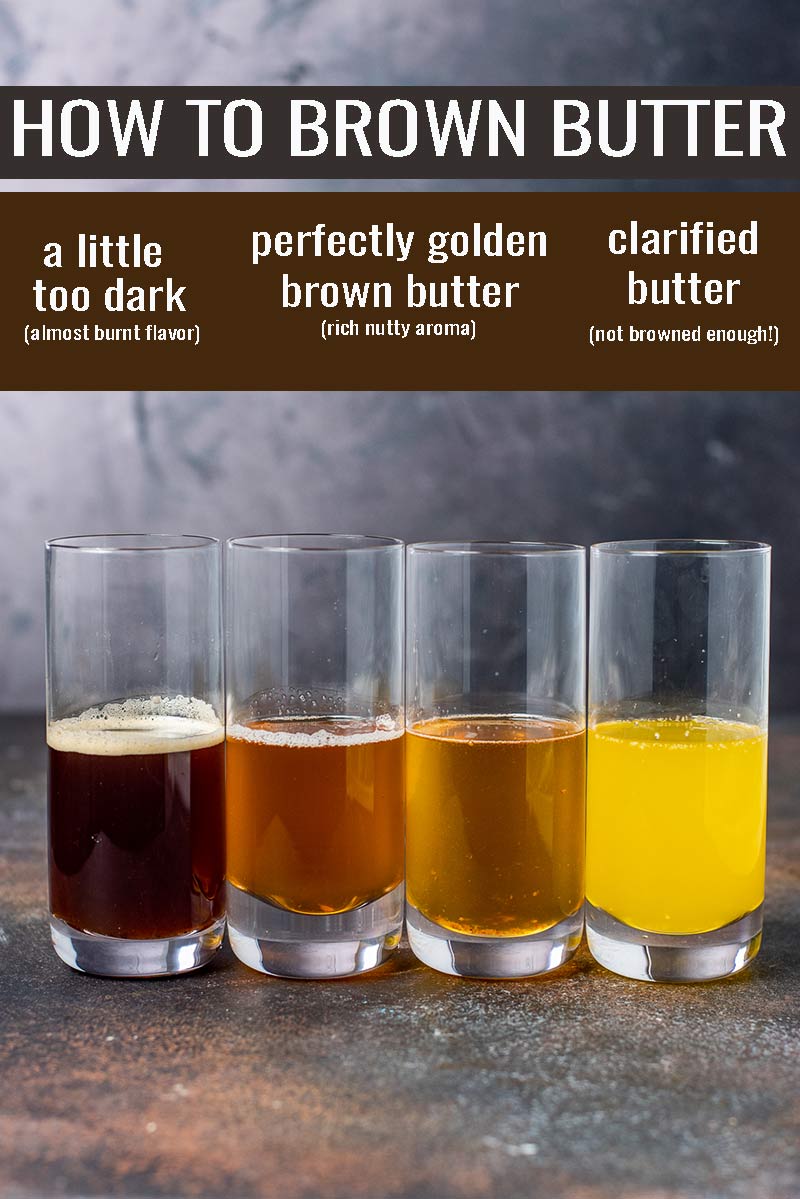
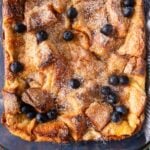
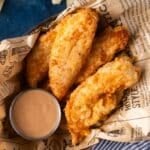

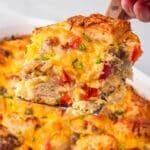
I was born in Lancaster, PA, the youngest of 5 girls and I started eating food with brown butter since I was on whole foods. My favorite was brown buttered noodles! I’m 88 and I’ve been serving brown butter noodles, mainly small shells or bowties, ever since I started cooking! I never tried the microwave, force of habit I guess and never heard anyone speak of it that way before! But I will definitely go that route from now on! I use salted butter all the time and wonder why you specify only unsalted butter? Cooking it on the stove is… Read more »
It’s much Safer, as well as much easier, to brown butter in the microwave. Stirring isn’t necessary, and you won’t get burns from spattering hot butter. 1-2 c. unsalted butter takes 3-6 m. on high in a microwave (check less than 1 c. after 2 m., and 2 c. after 3 m.) Some ovens take longer and others take less time. Once you’ve made browned butter in your microwave, you’ll know for the next time how long to set the timer, and walk away. To brown butter in the microwave: Slice butter into Tablespoon size slices and place in a… Read more »
Question: If I wanted to use brown butter in my regular cookie recipe and and it called for 1 cup of butter, would I still use only 1 cup to brown?
I love your recipes and I have loved everyone that I have trieds. Thank You so much.
Well done ladies enjoying every reciepies of urs tried all ur reciepies looking forward to new reciepies